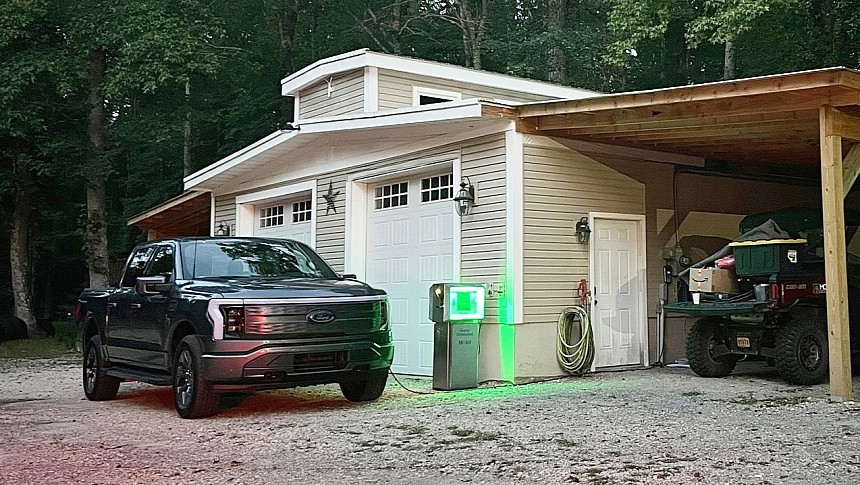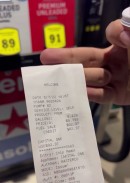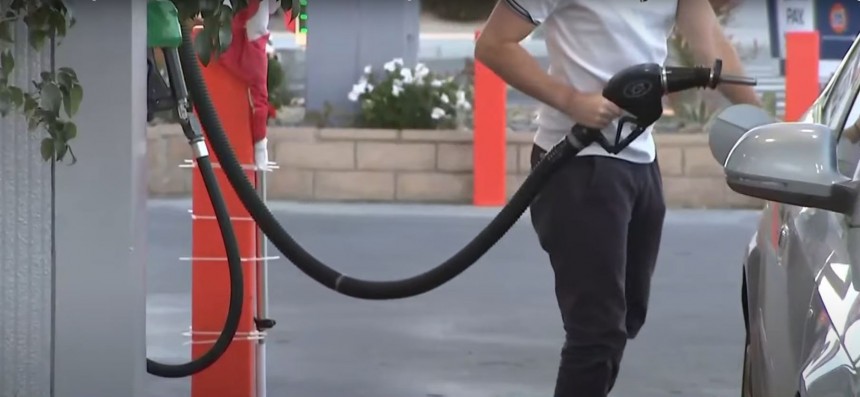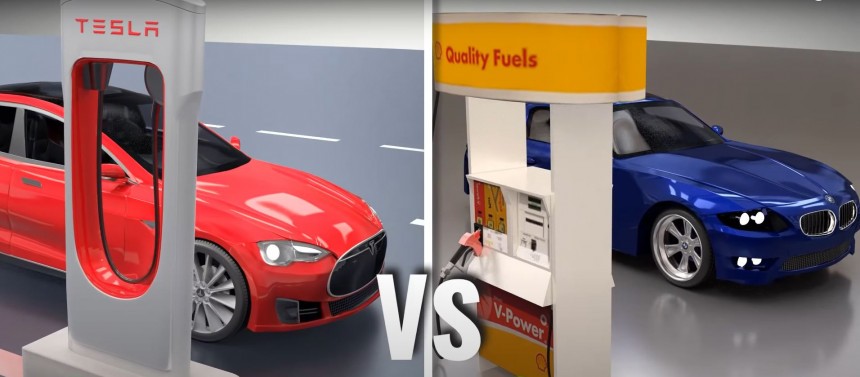Fuel prices are embedded into the global economy. For now, freight is mainly done by burning diesel, kerosene, gas, and some other oil derivatives. If fuel is expensive, companies have to spend more, and that eventually leads to price increases. Ultimately, the average customer will pay more for their usual shopping list or experience shrinkflation – less stuff gets packaged for the same price. In an inflationary environment, limiting oil output is not helping anyone steer the ship back on course. Saudi Arabia is doing precisely that. Here's why it's not all doom and gloom.
Around one year ago, the Organization of the Petroleum Exporting Countries (OPEC) decided to curb oil output even though the US opposed it and called for a one-month delay in implementing it. Nonetheless, the decision was firm. The American government alleged that the Saudi government pressured the other 12 OPEC member countries to agree with this decision, but the accusations were firmly denied. At the same time, an already frail relationship between America and Saudi Arabia started to erode even further.
The US is not part of OPEC. The 13 countries that have full membership and coordinate their oil output are Saudi Arabia, United Arab Emirates, Iran, Iraq, Kuwait, Libya, Algeria, Angola, Nigeria, Gabon, the Republic of Congo, Equatorial Guinea, and Venezuela. These nations control a little over 80% of the global oil reserves. The Middle East, however, has most of the black gold on its hands – over 67%, to be precise.
But there's also the OPEC+ group that includes the main OPEC members and some other allies like Russia.
Even though the US is still the world's largest oil producer, it's also the country that consumes most of the derivatives. As such, even if we like it or not, what OPEC does impacts America. Traders must deal with the global oil market, and that's one of the reasons why we're seeing gas prices on an uptrend lately. Sadly, it won't stop anytime soon.
But it's even worse for Europeans, who, on average, pay a tax of $0.54 per liter of gas and diesel. That amounts to a little over $2 per gallon. When writing, the AAA says the national average gas price stateside is $3.81 per gallon.
There were two major issues the US had with OPEC+'s decision. One, the existing administration feared inflation would continue to rise because companies were facing the prospect of an increased cost of doing business. Two, keeping the supply low meant traders would have to deal with increased acquisition costs. That benefitted, among others, Russia, which is in an open armed conflict with Ukraine after it invaded the Eastern European country, citing bogus claims that the international community didn't agree with.
But this year's summer introduced North Americans and Europeans to a striking reality – fuel prices were once again on the rise. That happened after the Washington Post disclosed that Saudi Arabia's crown prince threatened to inflict "major economic pain" on the US privately in 2022 after Joe Biden said "there will be consequences" for the Arab country.
Fast forward to the fall of 2023, and both Saudi Arabia and Russia confirmed they would voluntarily extend the daily oil output cut by 1.3 million barrels per day. The other OPEC countries didn't agree with the move. The news reached the right people, which meant the market oil price settled at a 10-month high. Brent sits at $89.2 when writing, while WTI is $86.4. These indexes reflect the average cost of trading oil. Brent encompasses around three-quarters of the world's black gold transactions, while WTI focuses mainly on US-extracted crude oil.
Less spending isn't great for any economy in the long run. Moreover, having your average Joe and Jane rethink their priorities isn't good for people's morale. Changing your lifestyle because the stuff you need is unaffordable is bound to lead to some social issues.
However, the reality is that low demand will eventually force businesses to lower prices without participating in the shrinkflation phenomenon. At least, let's hope it'll be so. But at whose expense will this happen… Well, that remains to be seen. What's certain is that it won't happen at the detriment of shareholders.
These developments remain a problem for the US and the EU, but none have addressed them publicly. What they've done in the past, however, matters even more.
In trying to decarbonize their economies and revitalize certain industries, the US and EU members or associated countries have introduced incentives to speed up electric vehicle development and production. But only America did it exceptionally well. Various laws introduced subsidies, incentives, credits, and rebates for individuals and corporations. As a direct effect, most of the automotive industry's big names are racing against the clock to manufacture cars, batteries, and other necessary EV parts in the US. Even chipmakers joined in on the fun.
All this won't only help America revitalize an important sector of its economy, but it'll also take away some of China's influence in the EV world. The Asian country is home to six of the ten largest EV battery makers. Besides that, it has learned how to make great cars because most manufacturers invested billions in the country to be able to sell there.
Establishing shorter supply chains will also lower the production carbon footprint of EVs, reduce corporate expenditures, and (hopefully) make these zero-tailpipe emission cars more accessible.
Many Americans still think EVs are unfeasible because they're either too expensive or perform poorly during cold winters and hot summers. On top of that, areas prone to floods make people avoid cars with batteries because they fear the reaction between water and lithium.
However, perceptions change gradually. We have all-electric driverless cars on the road in some cities, companies like Rivian proving that adventuring into the wild with an EV is not only possible but cool, and brands like Lucid providing outstanding green engineering solutions. Besides that, new names like Fisker seem ready to launch even better all-electric machines that can do anything a gas-powered car can do but are more silent, faster, and feature great tech.
Moreover, legacy automakers are joining forces with Tesla, which created and keeps expanding one of the most reliable high-power charging networks – the Supercharger.
Now, besides having EVs with a respectable range on a single charge and DC stalls that can replenish batteries quickly, we also get a renewed reason to consider them – the high price of gas. And that's all thanks to Saudi Arabia's stubbornness to not work with the US and the EU.
There are almost no logical reasons why someone needing a commuting appliance today would not consider something like the Tesla Model 3, the Fisker Ocean, the Cadillac Lyriq, the F-150 Lightning, or the three-row Rivian R1S. Even the Model X is a great proposition, considering it's now eligible for the full EV tax credit.
Still, as mentioned above, many need to make contact with an EV, learn about the lifestyle change the switch to such a car encompasses, and discover all the benefits of such a machine. Technologies like vehicle-to-home (bidirectional charging) can be truly useful when the going gets tough.
But it's worth noting that Saudi Arabia is also involved in the EV sector. The country's Public Investment Fund (PIF) is Lucid's majority stockholder, and the brand's CEO is one of the most well-rewarded auto executives. Peter Rawlinson received a total compensation of $379 million for what he did in 2022, out of which $575,000 represented the minimum salary.
Saudi Arabia also created Ceer, a new car brand that is rumored to take Lucid tech and make its own exterior and interior designs. Lucid is also scheduled to open a factory there.
However, thanks to the Arab country (and its allies), Americans and Europeans have a renewed reason to switch to an all-electric vehicle. That's excellent news for companies hoping to sell more EVs and local environments, especially crowded urban areas where personal cars burn gas or diesel for human mobility.
The US is not part of OPEC. The 13 countries that have full membership and coordinate their oil output are Saudi Arabia, United Arab Emirates, Iran, Iraq, Kuwait, Libya, Algeria, Angola, Nigeria, Gabon, the Republic of Congo, Equatorial Guinea, and Venezuela. These nations control a little over 80% of the global oil reserves. The Middle East, however, has most of the black gold on its hands – over 67%, to be precise.
But there's also the OPEC+ group that includes the main OPEC members and some other allies like Russia.
Even though the US is still the world's largest oil producer, it's also the country that consumes most of the derivatives. As such, even if we like it or not, what OPEC does impacts America. Traders must deal with the global oil market, and that's one of the reasons why we're seeing gas prices on an uptrend lately. Sadly, it won't stop anytime soon.
Making Americans desire EVs
After last year's diplomatic confrontation between the US and Saudi Arabia, Joe Biden took a strong stance and said "there will be consequences" for the Middle Eastern country because it decided to lower the daily oil output by two million barrels per day. Whatever the President meant to do, however, didn't materialize. Fortunately, in late 2022, gas prices remained on a steady course.There were two major issues the US had with OPEC+'s decision. One, the existing administration feared inflation would continue to rise because companies were facing the prospect of an increased cost of doing business. Two, keeping the supply low meant traders would have to deal with increased acquisition costs. That benefitted, among others, Russia, which is in an open armed conflict with Ukraine after it invaded the Eastern European country, citing bogus claims that the international community didn't agree with.
But this year's summer introduced North Americans and Europeans to a striking reality – fuel prices were once again on the rise. That happened after the Washington Post disclosed that Saudi Arabia's crown prince threatened to inflict "major economic pain" on the US privately in 2022 after Joe Biden said "there will be consequences" for the Arab country.
There's a silver lining
Some experts think that Saudi Arabia and Russia aligning their interests might curb core inflation in the US and the European Union. Rising gas prices might make people spend less on fuel and, indirectly, other things that could now be deemed unworthy of an extra expenditure.Less spending isn't great for any economy in the long run. Moreover, having your average Joe and Jane rethink their priorities isn't good for people's morale. Changing your lifestyle because the stuff you need is unaffordable is bound to lead to some social issues.
However, the reality is that low demand will eventually force businesses to lower prices without participating in the shrinkflation phenomenon. At least, let's hope it'll be so. But at whose expense will this happen… Well, that remains to be seen. What's certain is that it won't happen at the detriment of shareholders.
In trying to decarbonize their economies and revitalize certain industries, the US and EU members or associated countries have introduced incentives to speed up electric vehicle development and production. But only America did it exceptionally well. Various laws introduced subsidies, incentives, credits, and rebates for individuals and corporations. As a direct effect, most of the automotive industry's big names are racing against the clock to manufacture cars, batteries, and other necessary EV parts in the US. Even chipmakers joined in on the fun.
All this won't only help America revitalize an important sector of its economy, but it'll also take away some of China's influence in the EV world. The Asian country is home to six of the ten largest EV battery makers. Besides that, it has learned how to make great cars because most manufacturers invested billions in the country to be able to sell there.
Establishing shorter supply chains will also lower the production carbon footprint of EVs, reduce corporate expenditures, and (hopefully) make these zero-tailpipe emission cars more accessible.
Uhm, thanks, Saudi Arabia?
This year marked an important premiere for the automotive industry – an all-electric car is the world's best-selling vehicle. The Tesla Model Y crossover SUV reigns so far into 2023. Interest in EVs is at an all-time high, but it's still not enough. J.D. Power says less than 1% of all the vehicles (including light-duty trucks) currently in use in the US boast zero-tailpipe emission powertrains. That's around 25 million EVs.However, perceptions change gradually. We have all-electric driverless cars on the road in some cities, companies like Rivian proving that adventuring into the wild with an EV is not only possible but cool, and brands like Lucid providing outstanding green engineering solutions. Besides that, new names like Fisker seem ready to launch even better all-electric machines that can do anything a gas-powered car can do but are more silent, faster, and feature great tech.
Moreover, legacy automakers are joining forces with Tesla, which created and keeps expanding one of the most reliable high-power charging networks – the Supercharger.
Now, besides having EVs with a respectable range on a single charge and DC stalls that can replenish batteries quickly, we also get a renewed reason to consider them – the high price of gas. And that's all thanks to Saudi Arabia's stubbornness to not work with the US and the EU.
Still, as mentioned above, many need to make contact with an EV, learn about the lifestyle change the switch to such a car encompasses, and discover all the benefits of such a machine. Technologies like vehicle-to-home (bidirectional charging) can be truly useful when the going gets tough.
But it's worth noting that Saudi Arabia is also involved in the EV sector. The country's Public Investment Fund (PIF) is Lucid's majority stockholder, and the brand's CEO is one of the most well-rewarded auto executives. Peter Rawlinson received a total compensation of $379 million for what he did in 2022, out of which $575,000 represented the minimum salary.
Saudi Arabia also created Ceer, a new car brand that is rumored to take Lucid tech and make its own exterior and interior designs. Lucid is also scheduled to open a factory there.
However, thanks to the Arab country (and its allies), Americans and Europeans have a renewed reason to switch to an all-electric vehicle. That's excellent news for companies hoping to sell more EVs and local environments, especially crowded urban areas where personal cars burn gas or diesel for human mobility.



































